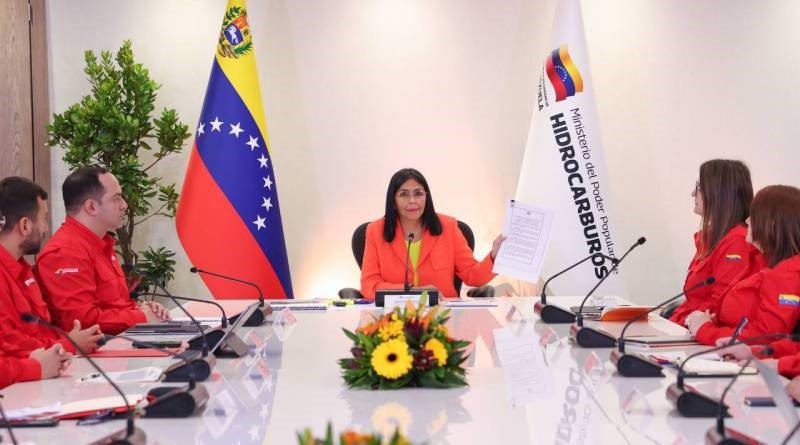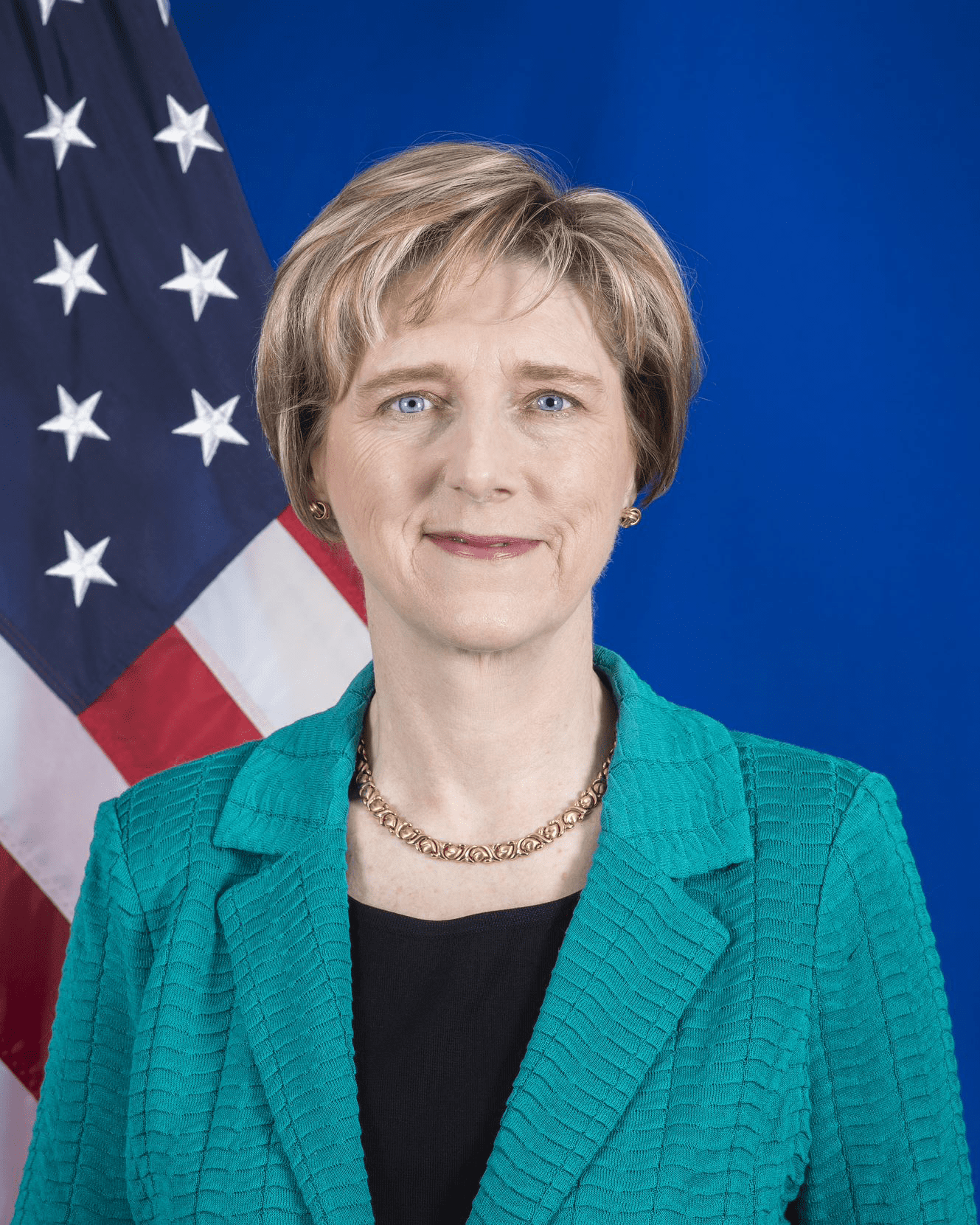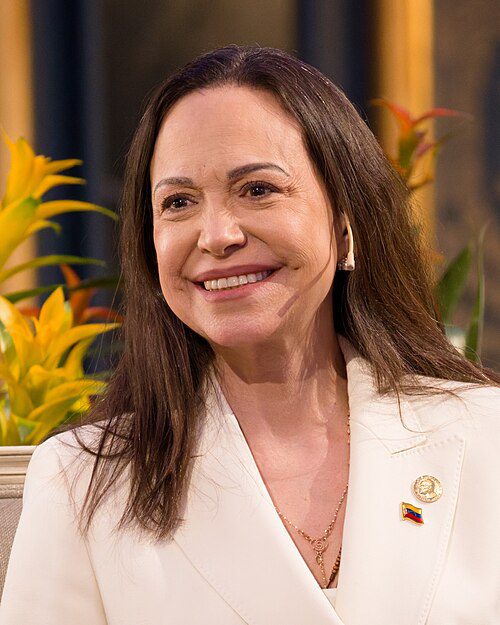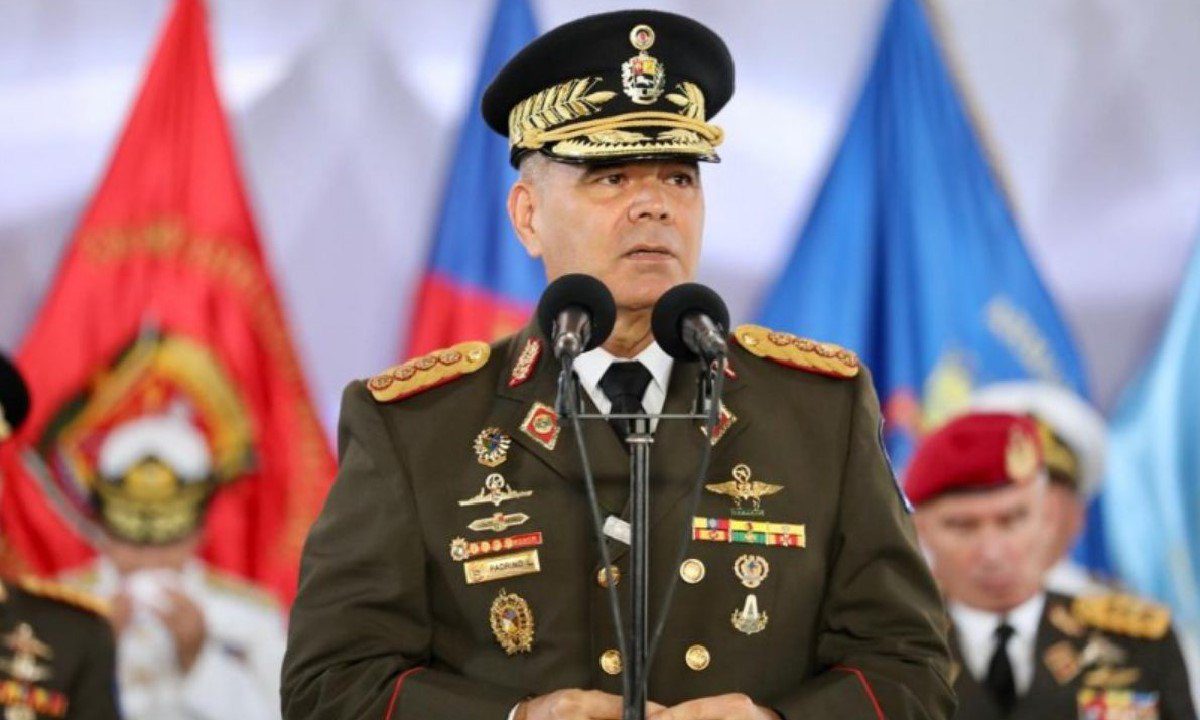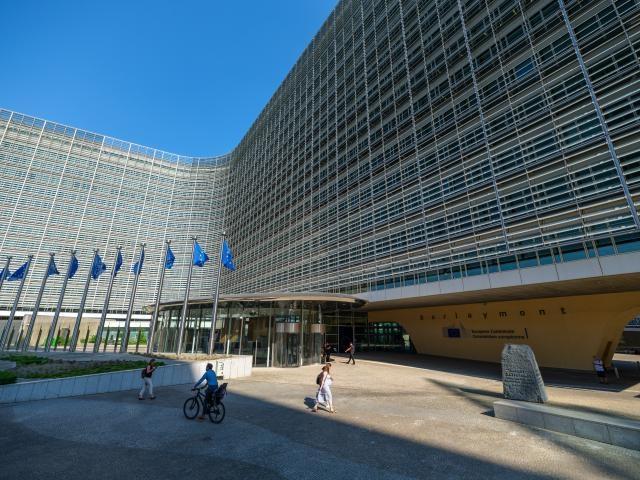Vice President Delcy Rodríguez stated that the new administration of the neighboring country has believed the lies of Secretary of State Marco Rubio, who “seeks to escalate the United States’ aggression against Venezuela.” Photograph: Venezolana de Televisión.
Guacamaya, October 27, 2025. The Government of Venezuela announced its intention to suspend all energy cooperation agreements with Trinidad and Tobago, including negotiations on joint natural gas projects. The decision, driven by Vice President and Minister of Oil, Delcy Rodríguez, comes in response to the deterioration of bilateral relations following the rise to power of Prime Minister Kamla Persad-Bissessar, who is considered an ally of Washington.
Rodríguez reported that her office will formally request the Presidency to suspend the ongoing agreements, including the emblematic Dragon field gas project—with estimated reserves of 4.2 trillion cubic feet—which involves the company Shell and the state-owned National Gas Company of Trinidad and Tobago.
“Current relations with Trinidad and Tobago are hostile; consequently, all gas agreements with that country will be suspended,” Rodríguez stated in a televised message.
The measure comes after the Trinidadian government received a license from the United States to negotiate with Venezuela, a country under oil sanctions since 2019. Caracas strongly criticized this authorization, stating that any supply of Venezuelan gas must be paid for.
Venezuelan gas holds strategic importance for the economy of Trinidad and Tobago, whose energy sector—based on the production of liquefied natural gas, petrochemicals, and fertilizers—depends heavily on a stable supply of this resource. Joint projects with Venezuela, such as the Dragon field, represent a key source for sustaining the Caribbean nation’s export capacity and ensuring the region’s energy security, particularly in the face of growing global market volatility and the depletion of local reserves.
For her part, Persad-Bissessar stated that her country “does not need Venezuelan gas” and will continue to promote the growth of its economy “within and outside the energy sector.”
The future of the Manatee project—operated by Shell in the maritime border between the two countries—is also uncertain, despite having previously received the green light from Caracas for its independent development on the trinidadian side.

